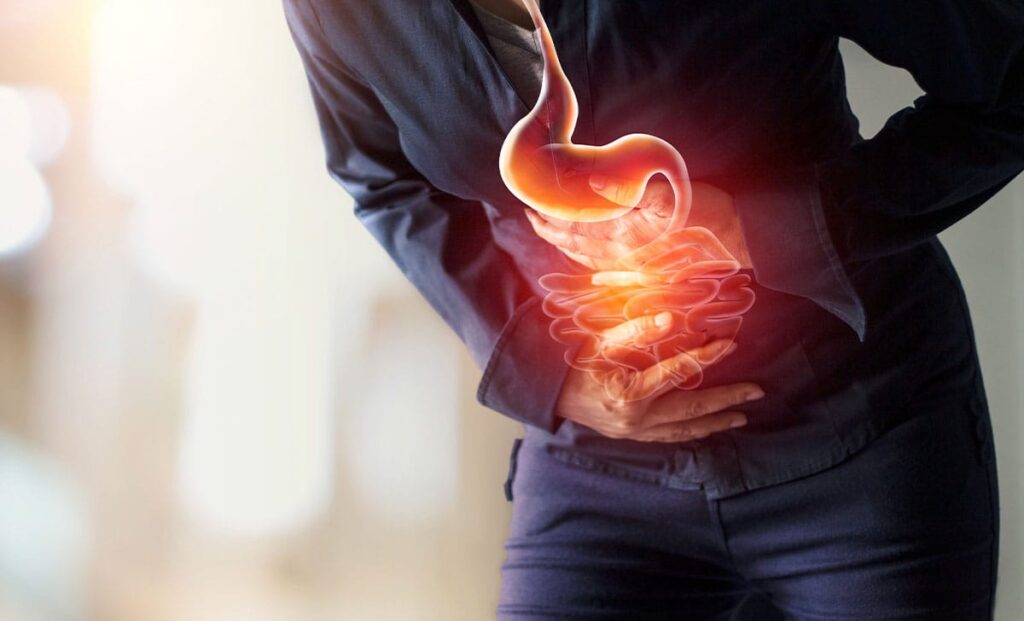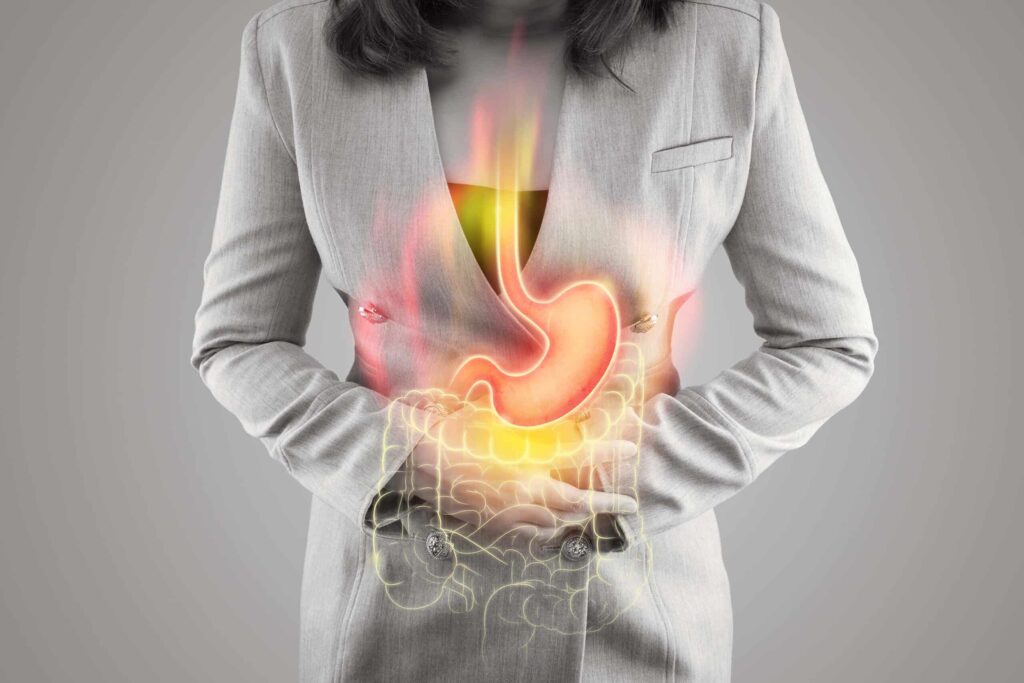Menu
TALK TO AN EXPERT
+91 9236407378
+91 9236407378
Gastric and peptic ulcers are open sores that develop on the inner lining of the stomach and the upper part of the small intestine (duodenum). These ulcers occur when the protective mucous layer of the stomach or intestine is compromised, allowing stomach acid to erode the underlying tissue. The terms “gastric ulcer” and “peptic ulcer” are often used interchangeably, but there are distinctions:
H. pylori is a common bacterium that can weaken the stomach's protective lining, making it more susceptible to damage from stomach acid, leading to ulcers.
Long-term use of NSAIDs such as aspirin, ibuprofen, and naproxen can irritate and inflame the stomach lining, increasing the risk of ulcers.
Conditions like Zollinger-Ellison syndrome, where there is an overproduction of stomach acid, can lead to ulcer formation
Smoking increases the risk of ulcers by impairing the stomach’s protective lining. Excessive alcohol consumption can also irritate and erode the stomach lining, contributing to ulcer formation.
While stress and spicy foods do not directly cause ulcers, they can exacerbate symptoms and delay healing in individuals who already have ulcers.


The symptoms of gastric and peptic ulcers can vary depending on the ulcer’s location and severity. Common symptoms include:
Burning Stomach Pain:
Bloating and Belching:
Nausea and Vomiting:
Heartburn:
Weight Loss:
Dark or Bloody Stools:
If you experience persistent symptoms of gastric or peptic ulcers, such as burning stomach pain, unexplained weight loss, or signs of bleeding (like black or bloody stools), it’s important to seek medical attention. Early diagnosis and treatment can prevent complications and improve outcomes. In addition to conventional medical care, exploring complementary therapies like homeopathy may offer additional relief and support. Won Homeopathy provides personalized treatments that address the root causes of ulcers, helping you achieve better digestive health and overall well-being.
Won Homeopathy: Offers homeopathic treatments tailored to individuals with gastric and peptic ulcers. These remedies focus on promoting natural healing, reducing acid production, and managing symptoms like pain and nausea, complementing conventional treatments.